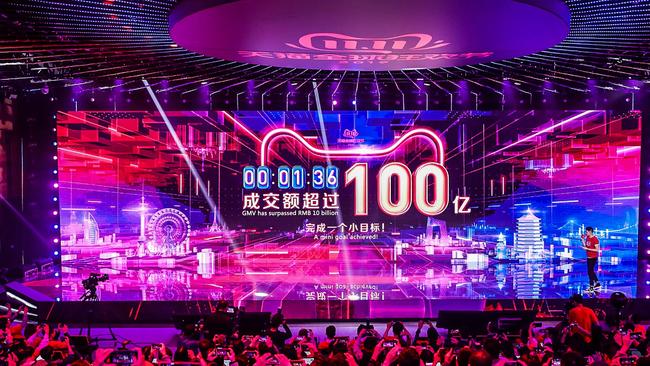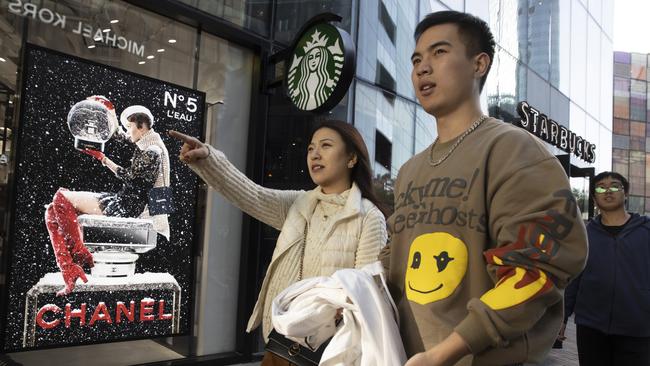Singles Day delivers for Alibaba
China’s Alibaba, which on Monday hosted the world’s biggest online shopping day, is supporting a new form of retail in China.

Chinese e-commerce giant Alibaba, which on Monday hosted the world’s biggest online shopping day, is supporting a new form of retail in China, according to Alastair Symington, the newly appointed chief executive of vitamin manufacturer Blackmores.
Speaking at a lunch in Sydney to celebrate the Singles Day online shopping extravaganza, Mr Symington said companies were using the Alibaba platform to offer alternative retail experiences through “online-to-offline” business models.
The growth of online-to-offline retail involves companies integrating online and bricks-and-mortar stores where customers can see, touch and experience products — even if they then go online to buy the goods.
The 24-hour Singles Day retail frenzy, which is held on November 11 each year, had by late Monday sold $US28bn ($41bn) worth of products after it was launched in a live-streamed event featuring singer Taylor Swift.

The concept was launched by Alibaba a decade ago and now attracts hundreds of millions of shoppers for the events.
A staggering $US1bn worth of sales were made in the first 68 seconds of the event this year.
Last year the sales day — known formally as the Tmall Global Shopping Festival — saw consumers spend $US30.8bn, up from $US24.1bn in 2017. Final figures for 2019, the 11th year the event has been held, will be available early Tuesday morning.
At the Sydney event, hosted by Alibaba’s Australian and New Zealand managing director Maggie Zhou, entrepreneur Jessica Rudd, who is an Alibaba lifestyle ambassador and founder of online store Jessica’s Suitcase, said she had seen a transitioning of the Chinese festival offline, with many bricks-and-mortar stores keen to take part.
“What this means for Australian brands and international brands is that online has become the way to segue offline into China,” Ms Rudd said.
Her comments support the claims by Alibaba’s leadership in recent months that e-commerce is being replaced by “new retail”, where the “distinction between online and offline retail becomes obsolete”.
The trend for online shops to seek bricks-and-mortar outlets has been facilitated by Alibaba through its Freshippo supermarkets. An Alibaba spokesman told The Australian that 60 per cent of the imported fresh food sold by the chain was ordered online and delivered within half an hour inside a 3km radius.
Ms Zhou said Australia last year was the third-biggest source country for the global shopping festival after Japan and the US, with the Chemist Warehouse group the biggest single company, selling in from outside China.
The two biggest categories for cross-border sales from Australia last year were health supplements and adult milk products, and Alibaba was looking for more retailers and more brands from Australia.




To join the conversation, please log in. Don't have an account? Register
Join the conversation, you are commenting as Logout